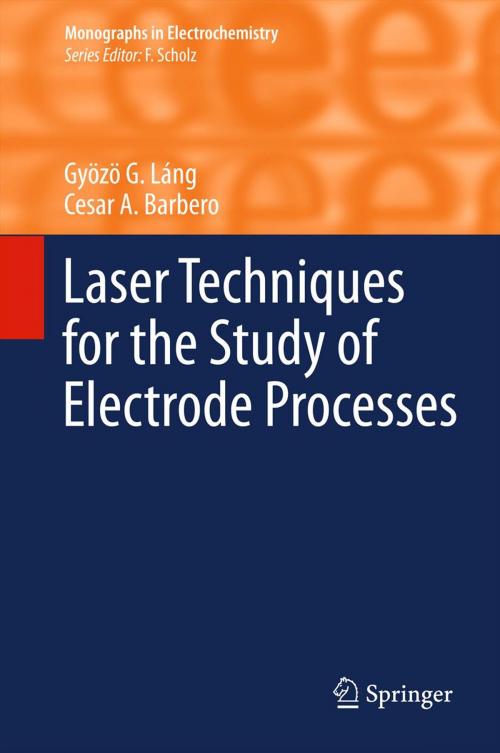Laser Techniques for the Study of Electrode Processes
Nonfiction, Science & Nature, Science, Chemistry, Physical & Theoretical, Technology, Material Science| Author: | Cesar A. Barbero, Gyözö G. Láng | ISBN: | 9783642276514 |
| Publisher: | Springer Berlin Heidelberg | Publication: | April 23, 2012 |
| Imprint: | Springer | Language: | English |
| Author: | Cesar A. Barbero, Gyözö G. Láng |
| ISBN: | 9783642276514 |
| Publisher: | Springer Berlin Heidelberg |
| Publication: | April 23, 2012 |
| Imprint: | Springer |
| Language: | English |
Laser-enabled measurements are valuable tools for the investigation of surfaces and interfaces or for the in situ investigation of interfacial processes including electrode processes. The understanding of the thermodynamics of solid/liquid surfaces is important for surface science and electrochemistry. In the first part of this book, the authors describe a range of techniques for investigating interfacial tension and surface stress, which is important for coatings, thin films, and fuel cells. The techniques covered comprise bending beam (bending plate, bending cantilever, wafer curvature) methods with different detection techniques. Special attention is given to methods using optical detection by laser beam deflection or interferometry. The second part is devoted to the techniques based on the detection of refractive index gradients in the solution. The refractive index changes could be related to concentration gradients (Probe Beam Deflection, PBD) or light-induced thermal gradients (Photothermal Deflection Spectroscopy, PDS). The application of the techniques to surface-confined and solution electrochemical systems is described. Subsequently, a comparison with others techniques able to monitor ion fluxes is performed.
Laser-enabled measurements are valuable tools for the investigation of surfaces and interfaces or for the in situ investigation of interfacial processes including electrode processes. The understanding of the thermodynamics of solid/liquid surfaces is important for surface science and electrochemistry. In the first part of this book, the authors describe a range of techniques for investigating interfacial tension and surface stress, which is important for coatings, thin films, and fuel cells. The techniques covered comprise bending beam (bending plate, bending cantilever, wafer curvature) methods with different detection techniques. Special attention is given to methods using optical detection by laser beam deflection or interferometry. The second part is devoted to the techniques based on the detection of refractive index gradients in the solution. The refractive index changes could be related to concentration gradients (Probe Beam Deflection, PBD) or light-induced thermal gradients (Photothermal Deflection Spectroscopy, PDS). The application of the techniques to surface-confined and solution electrochemical systems is described. Subsequently, a comparison with others techniques able to monitor ion fluxes is performed.















